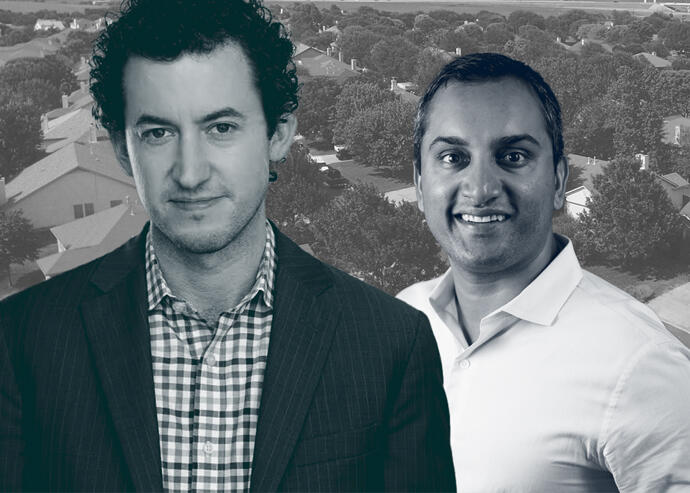
HomeLight Founder and CEO Drew Uher & COO Sumant Sridharan (HomeLight, Uher)
Proptech firm HomeLight secured $100 million in a Series D equity raise that values the company at $1.6 billion.
The San Francisco-based company, which earlier this year was reported to be edging toward an IPO, also raised $263 million in debt financing, bringing its total funding to-date to about $530 million.
A platform designed to streamline the homebuying process by facilitating contingency-free transactions, HomeLight expects its annual revenue to triple to more than $300 million this year.
Despite the growth, an IPO is not on the immediate horizon, COO Sumant Sridharan said in an interview.
“We’re always evaluating what’s best for the company. That’s a decision that, if and when the timing is right, we’ll make it,” he said. “But it’s not something on the near-term roadmap.”
The Series D was led by early-stage venture fund Zeev Ventures, which led earlier fundraising rounds for HomeLight and recently led a $250 million Series B round for the home buying and selling platform Reali. Group 11, STCAP, Menlo Ventures, and Lydia Jett of SoftBank’s Vision Fund also participated in HomeLight’s Series D.
Founded in 2012 with initial investment from Google Ventures and Group 11, HomeLight is one of a few startups looking to level the playing field in hot housing markets by providing more homebuyers with the ability to make cash offers. The company started as an online lead generation service, matching buyers and sellers with real estate agents, before branching out into mortgage lending and instant buying.
“The last 10 years of real estate technology have been focused around listing aggregation,” Sridharan said. “We think the next 10 years are going to be about fundamentally changing the mechanics of the real estate transaction.”
The company raised $109 million in its previous funding round, in 2019. With its latest round, Homelight plans to scale its financial products, HomeLight Trade-In and HomeLight Cash Offer, add to its headcount and open up new domestic and international offices.
The company is working to establish a regional hub in Tampa and build out a “fairly significant presence” in Dallas, Sridharan said.



